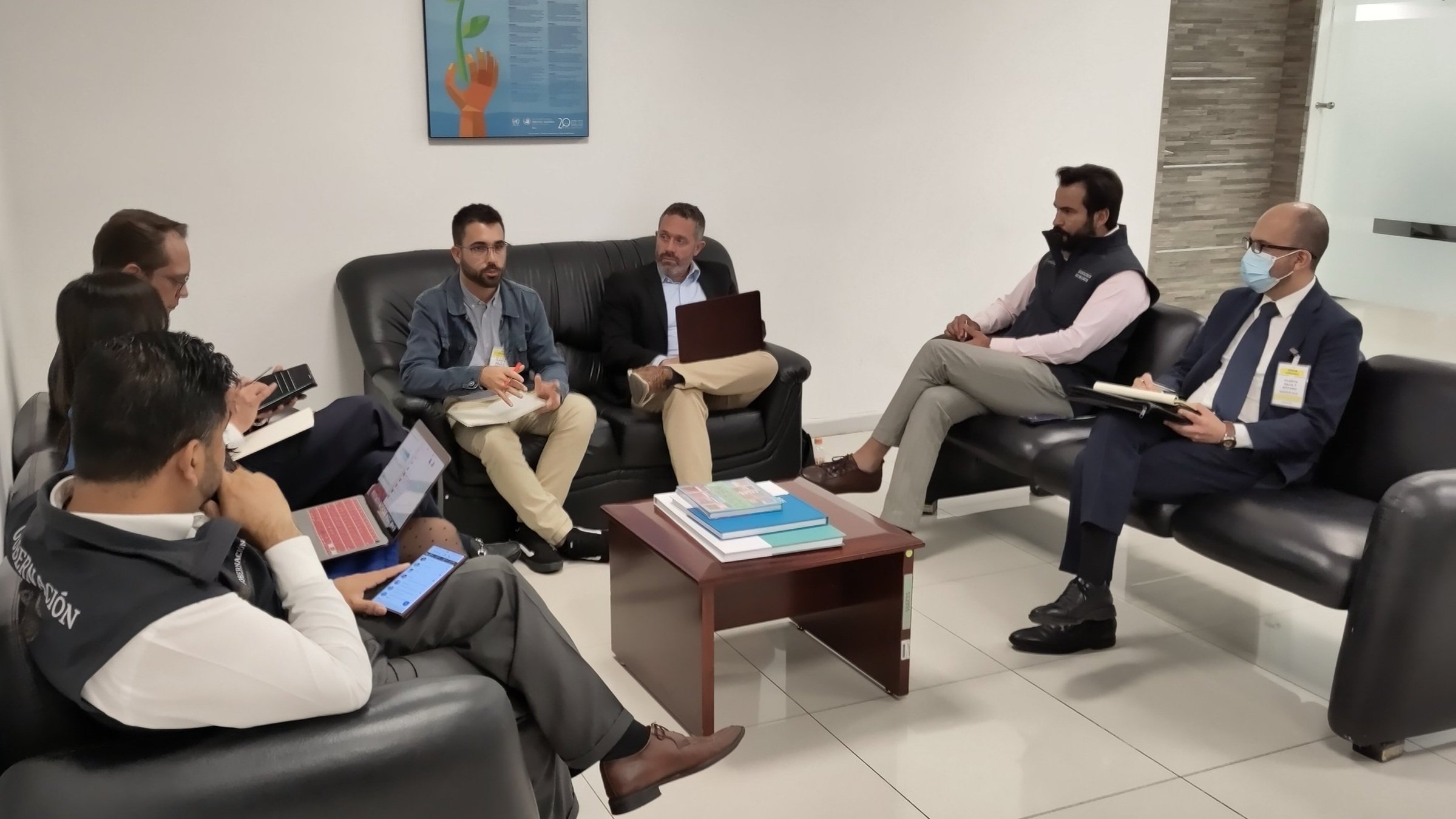Mexico: Solidarity in the face of adversity
On International Human Solidarity Day, PBI’s UK Director Ben Leather reflects upon his recent trip to Mexico
This time last month I was sat in the mountains of central Mexico, listening to a group of Mexican campesino leaders united in their resistance to a controversial gas pipeline that the government and big business want to push through their farmland. They told me how they’d resisted bribery and threats to stand up to a megaproject which has already buried through ecologically fragile land at the foot of the imposing, active volcano Popocatépetl.
I had joined members of PBI’s Mexico team and the inspirational human rights lawyer Juan Carlos Flores Solís in a whirlwind tour of Indigenous and rural communities in Puebla and Morelos to better understand their opposition to a series of extractive and infrastructure projects collectively known as the Proyecto Integral Morelos. I heard about pollution from wastewater and health impacts associated with a geothermal plant. And I heard how the public-private pressure to impose these initiatives without community consent had created ruptures and led to threats and retaliation against opponents of the projects.
We also learnt that Juan Carlos himself had recently suffered what can only be interpreted as an attempt on his life. He had been driving to work when he noticed strange noises underneath his car. Upon inspection, he found that the bolts of one of the front tires were completely loose. A professional mechanic inspected the vehicle and confirmed that they could not have been loosened naturally, concluding that someone had likely intentionally sabotaged the car to put Juan Carlos' life at risk. This comes on the back of intimidation, harassment and surveillance of the lawyer earlier this year. He and his colleagues have previously faced trumped-up judicial processes as a reprisal for their human rights work.
PBI provide protective accompaniment to Juan Carlos and other members of the Peoples' Front in Defence of Land and Water (FPDTA - MPT) so that they can continue defending the environment and seeking justice for communities affected by destructive extractive projects. In light of this serious incident, we have upped our physical presence in the region, lobbied the Mexican government to improve their protection of the group, and activated diplomatic contacts to speak out.
Protection, advocacy and solidarity
Mexico is the deadliest country in the world for environmental activists, with at least 54 land and environmental defenders killed in 2021 according to Global Witness. President López Obrador has shown a worrying intolerance of criticism, frequently criticising and demonising human rights organisations, while also pursuing legal restrictions on NGOs. A governmental protection programme for human rights defenders and journalists was established by law in 2012, but a lack of political will and resources mean it has never been implemented effectively and consistently. Across the country, PBI supports human rights defenders facing reprisals for their activism.
As Director of PBI’s UK office, my focus is usually on generating global support for this work: identifying funds, recruiting field volunteers, matching legal support to defenders’ needs, and priming parliamentarians and government officials to respond to the threats activists face. We recently welcomed environmental defender Diana Villalobos Diaz to London to carry out advocacy regarding the threats to Indigenous communities and critical forests in the Sierra Tarahumara. She briefed MPs who subsequently travelled to Mexico to raise concerns with their Mexican counterparts. The UK Ambassador has since travelled to the region and discussed human rights with local government officials.
However, my overriding takeaway from visiting Mexico was a sense of solidarity and how much PBI’s presence means to people whose day-to-day is dominated by threats to them and their families. Whether Indigenous leaders in isolated communities or women’s rights activists facing misogynist smears, several human rights defenders told me variations of the same theme: with PBI alongside them, they feel stronger, they feel supported, they know they are safer, and they are connected to international networks that can help enhance the impact of their phenomenal work.
Visible and invisible fellowship
Much of PBI’s work is deliberately visible – a show the international attention on at-risk individuals and the issues they work on – but there is a lot more going on behind the scenes. Staff and volunteers are relentlessly meeting with authorities, diplomats and other contacts to advocate for them to take action.
In Mexico we met officials from the government’s Protection Mechanism for human rights defenders to reiterate civil society asks for improved response systems and preventative action. We discussed with the UK Embassy how they can help strengthen support for defenders. And we observed a meeting between tens of governmental representatives and Indigenous defenders whose protective measures – mandated by the Inter-American human rights system – are not being properly implemented.
The day after that meeting, I sat down with a group of women defenders whose work with rural communities in defence of their land in the North of the country puts them on a collision course with drug gangs, illegal loggers and other vested interests. Their organisations are managing to slow deforestation and help communities displaced by brutal violence to access justice and humanitarian aid. But the pressure they face is unimaginable.
International Human Solidarity Day is an opportunity to reflect upon what we can all do to show support and fellowship with those risking their lives to defend rights and the environment. From PBI we promise to do all we can to ensure that the brave human rights defenders in Mexico, and elsewhere in the world, are not alone.
You can support PBI’s work with human rights defenders by donating here and signing up to our newsletter to be alerted to future actions and activities. Thank you for your support and solidarity.





